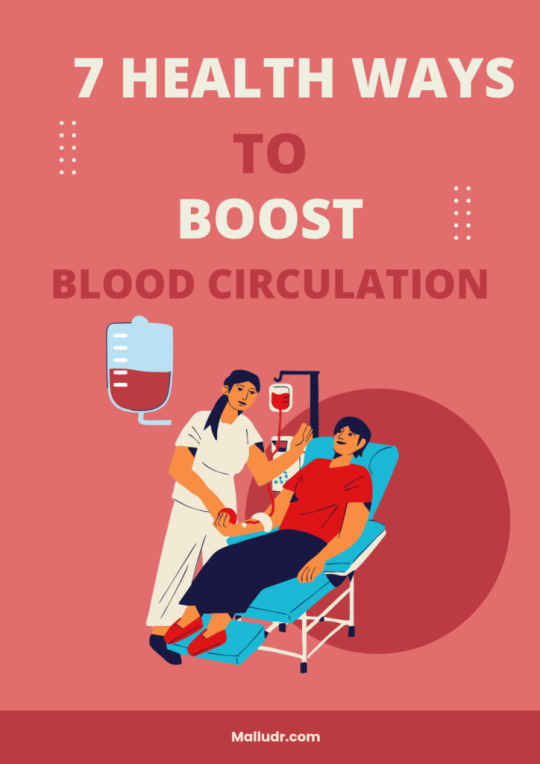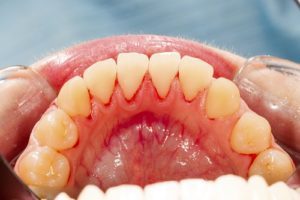#Exercise: 7 benefits of regular physical activity
Text
#Benefits of Physical Activity#The Top 10 Benefits of Regular Physical Activity#Exercise: 7 benefits of regular physical activity#Benefits of Exercise#13 Benefits of Exercise
0 notes
Text
Crafting a Transformative Healthy Daily Routine: Your Path to Wellness
In the hustle and bustle of modern life, it's easy to neglect our well-being while tending to various responsibilities. But adopting a healthy daily routine can have a profound impact on our physical, mental, and emotional well-being. Whether you're a student, a working professional, or someone seeking a more balanced life, here's a comprehensive guide to help you create a transformative healthy daily routine.
1. Rise and Shine with Intent: Morning Rituals The way you start your day sets the tone for the rest of it. Begin by waking up at a consistent time to regulate your body's internal clock. Engage in activities that promote mindfulness and positivity, such as meditation, deep breathing exercises, or journaling. Avoid immediately reaching for your phone or electronic devices to prevent a rush of information before you're mentally prepared.
2. Nourish Your Body: Balanced Breakfast Breakfast is often touted as the most important meal of the day, and for good reason. Fuel your body with a nutritious breakfast that includes a mix of complex carbohydrates, protein, and healthy fats. Opt for whole grains, fruits, yogurt, eggs, or smoothies to provide sustained energy throughout the morning.
3. Move and Groove: Physical Activity Incorporate exercise into your daily routine to boost your physical fitness and enhance your mood. Whether it's a brisk walk, a yoga session, or a full gym workout, find an activity you enjoy and make it a non-negotiable part of your day. Regular exercise improves cardiovascular health, increases metabolism, and releases endorphins, the "feel-good" hormones.
4. Structured Work (or Study) Time: Maintain Productivity For those with professional or academic commitments, structuring your work time is crucial. Break your day into focused work intervals, such as the Pomodoro technique (25 minutes of work followed by a 5-minute break). This approach enhances productivity while preventing burnout.
5. Mindful Consumption: Balanced Meals and Hydration Make conscious choices about what you eat and drink throughout the day. Consume a variety of nutrient-rich foods, including lean proteins, colorful vegetables, and healthy fats. Stay hydrated by drinking water regularly. Limit processed foods, sugary snacks, and excessive caffeine.
6. Mental Recharge: Short Breaks and Hobbies Intersperse your day with short breaks to relax your mind. Engage in hobbies you're passionate about, whether it's reading, playing a musical instrument, or practicing a craft. These moments of mental recharge enhance creativity and reduce stress.
7. Connect and Communicate: Social Interaction Human beings thrive on social connections. Dedicate time to interact with friends, family, or colleagues. Engaging in meaningful conversations or spending quality time with loved ones can uplift your spirits and provide emotional support.
8. Evening Wind-Down: Unplug and Relaxation As your day winds down, shift into relaxation mode. Limit screen time before bed to avoid the disruption of sleep-inducing hormones. Instead, read a book, take a warm bath, or practice gentle stretching. A calm evening routine sets the stage for a restful night's sleep.
9. Prioritize Sleep: Restorative Rest Sleep plays a pivotal role in overall health. Aim for 7-9 hours of quality sleep each night. Create a sleep-conducive environment by keeping your bedroom dark, quiet, and at a comfortable temperature. Establish a consistent sleep schedule to regulate your body's internal clock.
10. Reflection and Gratitude: Nighttime Journaling End your day by reflecting on your accomplishments and expressing gratitude. Write down a few things you're thankful for and acknowledge the progress you've made, no matter how small. This positive practice sets the tone for the next day.
Incorporating these elements into your daily routine takes time and commitment, but the benefits are worth the effort. A healthy daily routine can improve your physical health, enhance your mental well-being, and contribute to a more balanced and fulfilling life. Remember, it's not about perfection, but rather about progress and consistency on your journey to wellness.
#Healthy Lifestyle#Daily Routine#Wellness#Self-Care#Mindfulness#Balanced Living#Fitness#Nutrition#Productivity#Exercise#Mental Health#Positive Habits
94 notes
·
View notes
Text
12 daily habits to improve your health
Fuel Your Body with a Nutritious Breakfast: Starting your day with a balanced breakfast kickstarts your metabolism and provides energy for the day ahead. Choose whole grains, fruits, and protein sources.
Stay Hydrated: Water is essential for countless bodily functions. Aim to drink plenty of water throughout the day to stay hydrated and support overall health.
Move Your Body: Regular physical activity strengthens muscles, improves cardiovascular health, and boosts mood. Aim for at least 30 minutes of moderate-intensity exercise most days of the week.
Eat Mindfully: Pay attention to your hunger and fullness cues. Savor your food, avoid distractions while eating, and choose whole, unprocessed foods whenever possible.
Prioritize Sleep: Getting enough sleep is crucial for physical and mental well-being. Aim for 7-8 hours of quality sleep each night.
Limit Screen Time: Excessive screen time can disrupt sleep, strain your eyes, and contribute to stress. Take breaks throughout the day and disconnect before bed.
Connect with Nature: Spending time outdoors provides numerous benefits, including reduced stress, improved mood, and increased physical activity.
Practice Gratitude: Focusing on what you're grateful for can boost happiness and overall well-being. Take some time each day to appreciate the good things in your life.
Manage Stress: Chronic stress can negatively impact your physical and mental health. Find healthy ways to manage stress, such as meditation, yoga, or spending time with loved ones.
Cook More Meals at Home: Preparing your own meals allows you to control the ingredients and portion sizes, promoting a healthier diet.
Maintain Social Connections: Strong social connections are essential for emotional well-being. Spend time with loved ones, nurture existing relationships, and build new connections.
Learn Something New: Continuously learning keeps your mind sharp and engaged. Explore new hobbies, read books, or take online courses to expand your knowledge.
Here simple lifestyle changes for a healthier you visit here : https://healthyus.gumroad.com/l/lifestyle
#tw 3d vent#⭐️rving#3d#ana buddie#weight loss#pro for me not for thee#starv1ng#thin is pretty#thinneristhewinner#thinsperation#⭐️ ing motivation#intermittent fasti#ana is my friend#i need to lose so much weight#thin$po#thinnn#thinspp#tw thinspi#thinnerbeforedinner#thinspø#th1gh g@p#tw ed but not sheeran#starv3#eating disoder trigger warning#tw ed sheeran
23 notes
·
View notes
Text
Researchers from several institutions in Norway studied 10,732 adults, with two batches of data taken 7-8 years apart.
The data compared exercise routines with pain tolerance, as measured via a cold pressor test, or CPT, where you dunk your hand into frigid water for as long as possible, up to a maximum tolerance time of 106 seconds.
The results were pretty consistent: Those who were more active were better at handling the pain of the cold water for a more extended period, and those who increased their activity levels over the two survey points increased their pain threshold too.
"Being physically active at either of two time points measured at a 7-8-year interval was associated with higher pain tolerance compared to being sedentary at both time points," write the researchers in their published paper.
Continue Reading
67 notes
·
View notes
Text






THE TOP 7 BENEFITS OF SPRINTING
ARE SPRINTS GOOD FOR YOU?
When I first got into fitness I used to think the longer the distance attempted the fitter I was. It had to be a 6 mile/10km run at a minimum to qualify! However, fitness is far more than the distance you can run and being functionally fit is considerably more beneficial.
I certainly prefer sprinting as a pastime now and my main endurance cardio is a purposeful brisk walk.
Humanity has been sprinting since we evolved to stand upright. It's made possible by an unusual quirk of our anatomy—a feature that our tree-dwelling closest living relatives don't have.
At some point during our evolutionary history (perhaps as we moved out onto the savannas of Africa), it became necessary for us to cover the vast distances between sources of food quickly, and we went from walking to running to sprinting.
Running at maximal pace (sprinting) confers a variety of physiological and health-related benefits. Many of us move from our beds to our cars to our desks, without ever needing to propel ourselves forward quickly.

#1 IMPROVES YOUR BODY COMPOSITION
Your body composition is your ratio of fat-to-muscle. Most westerners have weak body composition, with high levels of fat and low muscle mass. As a society, we eat too many energy-dense, nutrient-poor foods that promote the deposition of fat in our bodies. Many of us certainly don't do enough regular movement to build and maintain lean body mass.
Sprinting, however, not only helps to burn fat but also encourages muscles to grow. The reasons for this are not as straightforward as you might think.
Researchers are aware that it's not just the total calorie burn that matters for body composition, but the type of diet and exercise people do.
Research in Exercise and Sports Science Review suggests that sprinting shocks the body into becoming fitter at the cellular level. The researchers found that gene expression matters most for improving body composition.
Sprinting sends a signal to cells all over the body to toughen up and adapt to the new physical activity requirements, improving oxidative capacity and metabolic control during subsequent exercise, leaving you leaner.
Do you think endurance athletes have less body fat as a percentage of overall mass than sprinters? Interestingly there is research comparing the body composition of sprint and endurance athletes demonstrated that sprinters tend to have lower body fat percentages even though endurance athletes may look leaner.
#2 STAVES OFF AGEING
Since it helps build muscles, sprinting can help you stave off the muscle-wasting effects of ageing. Humans have several different types of muscles in their bodies, including so-called "fast-" and "slow-twitch" fibres. Fast-twitch muscle (type IIa and type IIb fibres that help you move powerfully) fatigue far more quickly than slow-twitch muscle (type I fibres used for posture and endurance).
Sprinting, as you might expect, trains fast-twitch fibres while movement patterns like standing, walking, and jogging activates slower-acting muscle cells.
Sprinting is an excellent exercise for those who want to build speed and power. The more you train the fast-twitch muscle fibres in your legs, the faster you'll be able to run and the higher you'll jump.
The skeleton also gets stronger too. Sprinting is classified as a weight-bearing exercise, and thus the bones can get stronger from sprinting. Getting your sprints in can help ward off osteoporosis and protect your balance and coordination.
You may feel you are too old to sprint and that it is an activity just for the young? Well, if in any doubt be inspired by Irene Obera still sprinting and breaking records well into her 80s.
It isn’t just about the body though, sprinting helps with ‘quickness’ and reaction time: evidence suggests improvements in reaction time reduces the risks of cognitive decline and conditions such as Alzheimer’s and dementia as we age.
#3 IMPROVES CARDIOVASCULAR HEALTH
HIIT or "high-intensity interval training" is something of a buzzword in the fitness industry right now. Practically every blog or fitness site recommends that people engage in this type of workout, and for a good reason—it's time-efficient and highly effective. HIIT is something I utilise as part of the programme in the Animal Moves book too!
Sprinting is the quintessential HIIT training tool. It's high-intensity, and you can do it in intervals, sprinting for a short period then resting between sprints.
Research in the Journal of Sports Science Medicine suggests that HIIT training has many advantages for cardiovascular fitness over traditional "steady state" training (such as jogging for five miles). Researchers found that, compared to controls, students who engaged in HIIT training saw significant improvements in their VO2 max (a measure of oxygen use) and peak power output, two important markers for cardiovascular fitness.
Unfortunately, HIIT training was much less enjoyable for the majority of people enrolled in the study than the less extreme exercise. It is much harder work for sure, but turning this activity into a game such as a game of chase or a version of tag would undoubtedly enhance the enjoyment factor.
Sprinting even has it's own category of HIIT called SIT (sprint interval training) which has similar health and performance benefits including attaining a lower resting heart rate.
It's no secret that sprinting like other forms of exercise is great for your heart. Regular sprints lower your risk of heart disease, improve your blood cholesterol levels, and help control and prevent high blood pressure.

#4 REDUCES STRESS
Like other forms of exercise, sprint training can combat stress. It releases feel-good endorphins into the brain, helping sprinters cope with the rigours of training and come out on the other side feeling good, ready to do it all over again.
Sprinting calms your body and your brain. In the short term the physical stress of the sprint helps you to focus on the task at hand. After your body works hard through sprinting, the levels of stress hormones, like adrenaline and cortisol, drop. Stress and anxiety fade away.
Endorphins tend to be highest at the end of an exercise session, giving the sprinter a sensation of confidence and relief. The sprinter’s high!

#5 IMPROVES YOUR METABOLISM, EVEN AFTER THE SPRINT IS OVER
Sprinting burns more calories per unit of time than jogging, but the average person can only sustain a sprint for 30 seconds at most. After that, the body depletes its anaerobic stores and must rely on aerobic sources of energy, which can't sustain the same high levels of effort.
In the past, the thinking was that sprinting couldn't burn as many calories as long-duration physical activity. But, researchers have found that sprinting increases the rate of energy burn long after a person finishes exercising. Sprinting isn't just about the calories your body burns during exercise, but also those that it uses to recover afterwards. One measure for this phenomenon is EPOC (excess post-exercise oxygen consumption) otherwise known as the after-burn effect or oxygen debt.
Heavy resistance training and HIIT workouts appear to be superior to steady-state running or lower-intensity training in creating EPOC.
From an evolutionary point of view, it wasn't an advantage to dedicate vast energy resources to building muscle: it was much better to keep muscles as small as possible to lower energy requirements. The process of modifying muscle fibres into fast-twitch is energy-intensive, meaning that the body resists building them if it thinks it can get away with it. Sprinting overcomes this natural reluctance, however, and forces the body to make these energy-consuming adaptations after you finish exercising, dramatically increasing your overall burn.

#6 SPRINTS IMPROVE GLUCOSE CONTROL
Many westerners have poor glucose control (and don't know it). Our cells have become less sensitive to insulin, which acts like a key that unlocks the cell's door, allowing glucose to enter. Reduced insulin sensitivity or, more seriously, the development of insulin resistance (which can develop into type 2 diabetes), means insulin can't shuttle sugar into cells, leading to a dangerous buildup of glucose in the blood.
Researchers published in BMC Endocrine Disorders found that sprinting could improve metabolic risk factors, such as high blood sugar levels, as well as improve cholesterol levels, reduces blood pressure, cuts abdominal fat, and improves sugar metabolism.
Researchers believe sprinting might improve glucose control through pathways similar to how it improves cardiovascular health. A burst of intense exercise such as sprinting, signals to cells that they need to get their act together and make it more likely you'll survive in a demanding environment.
Sprinting tells your cells that life is fierce, and you need them to do better!
#7 YOU CAN DO IT ANYWHERE
The great thing about sprinting is that it can be done anywhere. You don't need special equipment or training gear. You don't need a gym membership; you can sprint at home. Even with limited space, you can sprint on the spot or even seated in your chair using your arms.
It's even better when you get outside to exercise; you can sprint in your back garden or down the street. Head to your local park and sprint there too. You can watch a video of me sprinting outside here!
if you are in the gym and want to replicate the intensity of the sprint on a treadmill - try Treadmill Drivers - otherwise known as the Deadmill. Very playful and very powerful!
My personal favourite is sprinting when rushing for the bus! What about you?
To help you improve your sprint technique and for an example sprint programme check out this post.
#kemetic dreams#fitness motivation#sprints#fitness#runners#running#runningmotivation#sprinters#sprinter
16 notes
·
View notes
Text
+*:ꔫ:*﹤self care quiz ﹥*:ꔫ:*+゚
take this quiz to reflect on your self-care habits and discover areas where you can nurture yourself more effectively. remember, self-care looks different for everyone, so trust your instincts and be honest with yourself as you answer each question. let's get started:
1. how often do you prioritize time for relaxation and rejuvenation in your daily routine?
a) every day
b) a few times a week
c) occasionally
d) rarely or never
2. do you regularly engage in activities that bring you joy and fulfillment, such as hobbies, creative pursuits, or spending time with loved ones?
a) yes, frequently
b) sometimes
c) rarely
d) not at all
3. how well do you manage stress and cope with challenges in your life?
a) i have healthy coping mechanisms in place and manage stress effectively
b) i'm working on developing better stress management skills
c) stress often overwhelms me, and i struggle to cope
d) i tend to avoid or ignore stressors altogether
4. do you prioritize your physical health by eating nutritious foods, staying hydrated, and getting regular exercise?
a) yes, i prioritize my physical health and make healthy choices consistently
b) i try to make healthy choices most of the time, but i could improve in some areas
c) i struggle to maintain healthy habits consistently
d) i neglect my physical health and often make unhealthy choices
5. how well do you prioritize your mental and emotional well-being by practicing self-care activities such as mindfulness, self-compassion, and seeking support when needed?
a) i prioritize my mental and emotional well-being and engage in self-care activities regularly
b) i try to practice self-care, but it's not always consistent
c) i often neglect my mental and emotional needs
d) i rarely prioritize my mental and emotional well-being and rarely practice self-care activities
6. how well do you set and maintain boundaries in your relationships and daily life to protect your time, energy, and well-being?
a) i'm assertive about setting boundaries and prioritize my needs without feeling guilty
b) i sometimes struggle to set boundaries but recognize the importance of doing so
c) i have difficulty setting and maintaining boundaries, and often feel overwhelmed by others' demands
d) i rarely set boundaries and often sacrifice my own needs to accommodate others
7. how well do you prioritize getting enough rest and sleep to support your overall health and well-being?
a) i prioritize sleep and consistently get enough rest each night
b) i prioritize sleep most of the time, but occasionally struggle to maintain a consistent sleep schedule
c) i often sacrifice sleep to meet other demands or struggle with sleep disturbances
d) i neglect my sleep needs and often feel tired or fatigued throughout the day
now, tally up your scores:
for every "a" answer, give yourself 4 points
for every "b" answer, give yourself 3 points
for every "c" answer, give yourself 2 points
for every "d" answer, give yourself 1 point
interpret your score:
25-28 points: congratulations! you prioritize your well-being and practice self-care effectively. keep up the great work!
18-24 points: you're on the right track with your self-care habits, but there's room for improvement in some areas. consider ways to nurture yourself more consistently.
10-17 points: it seems like you could benefit from prioritizing your well-being more effectively. focus on incorporating self-care activities into your routine and seeking support when needed.
7-9 points: it's clear that you're neglecting your self-care needs. remember that prioritizing your well-being is essential for overall health and happiness. consider reaching out for support and exploring ways to nurture yourself more effectively.
no matter your score, remember that self-care is an ongoing journey, and it's never too late to start prioritizing your well-being. listen to your needs, be kind to yourself, and take small steps each day to nurture your body, mind, and soul. you deserve it!
reply with your answer!
-love, pastel
17 notes
·
View notes
Text
Nervous System Wellness 101: How to Protect and Maintain Your Nerves

Caring for your nervous system is crucial for maintaining overall health and well-being. Here are some essential tips on how to take care of your nerve system:
1. Eat a Balanced Diet: A healthy diet plays a vital role in supporting your nervous system. Ensure that you consume a variety of nutrient-dense foods, including fruits, vegetables, whole grains, lean proteins, and healthy fats. These provide essential vitamins, minerals, and antioxidants that support nerve function and protect against oxidative stress.
2. Stay Hydrated: Proper hydration is essential for optimal nerve function. Drink an adequate amount of water throughout the day to keep your nerves hydrated and to facilitate the transmission of nerve signals.
3. Exercise Regularly: Physical activity not only benefits your muscles and cardiovascular system but also supports your nervous system. Engage in regular exercise, such as walking, jogging, swimming, or yoga, to improve blood circulation, reduce inflammation, and promote the health of your nerve cells.

4. Prioritize Sleep: Quality sleep is crucial for nerve cell regeneration and repair. Aim for 7-9 hours of uninterrupted sleep each night to ensure your nervous system gets the rest it needs to function optimally.
5. Manage Stress: Chronic stress can negatively impact your nervous system. Implement stress management techniques, such as deep breathing exercises, meditation, yoga, or engaging in hobbies you enjoy. Find what works best for you to reduce stress levels and support your nerve health.
6. Protect Yourself from Toxins: Exposure to environmental toxins can harm your nervous system. Minimize your exposure to harmful chemicals, pollutants, and toxins. Use natural cleaning products, avoid smoking and excessive alcohol consumption, and limit your exposure to pesticides and other harmful substances.

7. Maintain a Healthy Weight: Obesity and excess body weight can increase the risk of nerve damage and nerve-related conditions. Maintain a healthy weight through a balanced diet and regular exercise to reduce the strain on your nerves and support their optimal function.
8. Protect Your Head: Traumatic brain injuries can have a severe impact on your nervous system. Take precautions to prevent head injuries, such as wearing seatbelts, using helmets during sports or other activities with a risk of head injury, and practicing safe driving habits.
9. Stay Socially Active: Engaging in social activities and maintaining strong social connections can have a positive impact on your nervous system. Social interaction and support help reduce stress and promote emotional well-being, which in turn benefits your nerve health.
10. Consult a Healthcare Professional: If you experience any persistent or concerning symptoms related to your nervous system, such as numbness, tingling, weakness, or changes in coordination, it's important to seek medical advice. A healthcare professional can evaluate your symptoms, provide a proper diagnosis, and guide you on the best course of action.
Remember, taking care of your nervous system is an ongoing process. By adopting these habits and making conscious lifestyle choices, you can support the health and function of your nerve system, leading to overall improved well-being.
Boost Your Nerve System Health with These Fantastic Supplements

When it comes to maintaining a healthy nerve system, sometimes our bodies need a little extra support. That's where supplements come in! These fantastic helpers can provide the nutrients and compounds our nerves need to stay in tip-top shape. If you're looking to give your nerve system a boost, here are some of the best supplements you should consider. Let's dive in and discover the wonders they can do for your nerve health!
1. Vitamin B12: The Nerve System's Best Friend
Vitamin B12 is a true superstar when it comes to nerve health. It plays a crucial role in the formation of myelin, the protective coating around nerve fibers. By ensuring adequate B12 levels, you can support proper nerve function and reduce the risk of nerve damage. Consider adding a B12 supplement to your routine, especially if you follow a vegetarian or vegan diet, as B12 is primarily found in animal-based foods.
2. Alpha-Lipoic Acid: The Antioxidant Defender
Alpha-lipoic acid (ALA) is a powerful antioxidant that helps protect nerve cells from damage caused by free radicals. It also supports healthy blood sugar levels, which is important for nerve health. ALA has been shown to alleviate symptoms of neuropathy, a condition characterized by nerve damage. Including an ALA supplement in your regimen can provide that extra boost your nerves need to stay healthy and resilient.

3. Omega-3 Fatty Acids: Nourishment for Your Nerves
Omega-3 fatty acids, such as DHA and EPA, are not only beneficial for brain health but also for your nerves. These healthy fats provide the building blocks for nerve cell membranes and support proper nerve signaling. Incorporating an omega-3 supplement, like fish oil or algae oil, can help nourish your nerves and promote their optimal function.
4. Magnesium: The Calming Mineral
Magnesium is an essential mineral that plays a vital role in nerve function and relaxation. It helps regulate neurotransmitters and supports the transmission of nerve signals. Low magnesium levels have been associated with increased nerve excitability and muscle cramps. By adding a magnesium supplement to your routine, you can promote a calm and healthy nerve system.
5. Curcumin: The Golden Spice for Nerves
Curcumin, the active compound found in turmeric, has powerful anti-inflammatory and antioxidant properties. It has been shown to reduce nerve inflammation, relieve pain, and support nerve regeneration. Including a high-quality curcumin supplement can be a game-changer for your nerve health, providing natural support and relief.
Conclusion: Your nerve system deserves the best care, and these incredible supplements can provide the extra nourishment and support it needs. Remember, it's always a good idea to consult with a healthcare professional before starting any new supplements, especially if you have underlying health conditions or are taking other medications. So, go ahead and give your nerves the love they deserve by incorporating these fantastic supplements into your daily routine. Your nerve system will thank you with improved function, resilience, and overall well-being!

#healthy#health#nutrition#nutritious#healthcare#antioxidants#healthy diet#weight loss diet#low cal diet#diet plan#natural remedy#tips#latest news#headlines today news#news#world news#breaking news#headline news#brainstorm
16 notes
·
View notes
Text
Let's delve into healthy coping mechanisms and self-care practices that can help manage stress, anxiety, and negative emotions while fostering emotional well-being. Here are some techniques, rituals, and tools that can be beneficial:
Self-Love and Compassion Spells: Spells or rituals designed to cultivate self-love and self-compassion can be powerful. They can include affirmations, candle magic, and meditation. By focusing on self-love, you reinforce positive self-esteem and reduce self-criticism.
Energy Cleansing: Regularly cleanse your energy field using techniques like smudging with sage or palo santo, taking spiritual baths, or using sound cleansing methods like singing bowls or bells. These practices can help release stagnant or negative energy.
Crystals: Utilize crystals with calming and grounding properties. For example, amethyst can help reduce anxiety, while rose quartz promotes self-love. Carry these crystals with you or meditate with them to benefit from their energies.
Herbal Support: Incorporate herbs known for their calming effects, such as lavender, chamomile, and valerian. You can use them in teas, herbal sachets, or essential oil blends.
Meditation and Mindfulness: Develop a regular meditation or mindfulness practice. These practices can improve emotional regulation, reduce stress, and promote inner peace.
Journaling: Keep a journal to explore your thoughts and emotions. This can help you identify patterns, gain insight into your feelings, and release pent-up emotions.
Affirmations: Create and repeat positive affirmations that boost self-esteem and shift your mindset towards self-compassion and self-acceptance.
Breathing Exercises: Practice deep breathing techniques to calm your nervous system and reduce stress. The 4-7-8 technique (inhale for 4 seconds, hold for 7 seconds, exhale for 8 seconds) is particularly effective.
Physical Activity: Engage in regular exercise, which releases endorphins and helps manage stress and anxiety. Yoga and tai chi are excellent options for combining physical movement with mindfulness.
Nature Connection: Spend time in nature to ground yourself and connect with the Earth's energies. This can be as simple as a walk in the park or forest.
Positive Self-Talk: Pay attention to your inner dialogue. Challenge and reframe negative self-talk into more compassionate and empowering statements.
Seek Support: Don't hesitate to reach out to friends, family, or a therapist when needed. Talking about your feelings and experiences can be therapeutic.
Ritual Baths: Take ritual baths infused with herbs, salts, and essential oils that promote relaxation and self-care.
Creative Expression: Explore creative outlets like art, music, or writing. Expressing your emotions through creativity can be cathartic.
Limit Stressors: Identify and minimize sources of stress in your life. Setting boundaries and prioritizing self-care is crucial.
Remember that everyone's journey to emotional well-being is unique. It's essential to find practices and tools that resonate with you personally. These healthy coping mechanisms can help you navigate life's challenges, promote self-compassion, and foster emotional balance.
#psychology#self care#essential oils#crystals#witches of tumblr#witchcraft#spiritual growth#healing#witchblr#herbs
14 notes
·
View notes
Text

The Health Benefits of Outdoor Activities
In today's fast-paced world dominated by technology and indoor living, spending time outdoors might seem like a luxury. However, connecting with nature and engaging in outdoor activities is more than just a leisure pursuit; it's also crucial for our physical and mental well-being. From reducing stress to improving physical fitness, the benefits of outdoor activities are numerous and diverse.
1. Improved Mental Health
One of the most significant advantages of spending time outdoors is its positive impact on mental health. Studies have shown that exposure to nature can reduce stress, anxiety, and depression. The sights, sounds, and smells of the outdoors can have a calming effect on the mind, promoting relaxation and improving overall mood. Activities such as hiking, gardening, or simply taking a walk in the park can help clear the mind and alleviate symptoms of stress and anxiety.
2. Increased Vitamin D Levels
Sunlight is a natural source of vitamin D, which plays a crucial role in maintaining bone health, regulating mood, and supporting the immune system. Spending time outdoors allows our bodies to absorb sunlight, leading to increased vitamin D production. Adequate levels of vitamin D are essential for overall health and can help prevent various health conditions, including osteoporosis, heart disease, and certain types of cancer.
3. Enhanced Physical Fitness
Outdoor activities offer numerous opportunities for physical exercise, contributing to improved fitness levels and overall health. Whether it's cycling, hiking, swimming, or playing sports, outdoor activities provide a fun and enjoyable way to stay active. Regular exercise helps maintain a healthy weight, strengthens muscles and bones, and reduces the risk of chronic diseases such as obesity, diabetes, and cardiovascular conditions.
4. Better Sleep Quality
Exposure to natural light during the day can help regulate the body's internal clock, leading to better sleep at night. Spending time outdoors, especially in the morning, can help synchronize your circadian rhythm, making it easier to fall asleep and stay asleep. Additionally, physical activity during the day can promote deeper and more restful sleep, further enhancing overall sleep quality.
5. Stress Reduction
Nature has a calming effect on the human mind, helping to reduce stress and promote relaxation. Activities such as hiking, gardening, or simply sitting in a park can provide a welcome escape from the pressures of daily life. Being surrounded by greenery and natural landscapes can lower cortisol levels, the hormone associated with stress, and increase feelings of well-being and tranquility.
6. Boosted Immune System
Spending time outdoors exposes us to various natural elements, which can help strengthen our immune system. Fresh air, sunlight, and exposure to different environments can stimulate the production of white blood cells and enhance immune function. Additionally, outdoor activities often involve physical exercise, which has been shown to improve immune response and reduce the risk of infections and illness.
7. Connection with Nature
In today's urbanized world, many people are disconnected from the natural world. Engaging in outdoor activities allows us to reconnect with nature, fostering a sense of appreciation and stewardship for the environment. Whether it's observing wildlife, exploring forests, or simply enjoying a picnic in the park, spending time outdoors reminds us of the beauty and importance of the natural world.
In conclusion, the benefits of outdoor activities for health are vast and multifaceted. From improving mental well-being to boosting physical fitness and immune function, spending time in nature offers a range of advantages that contribute to a healthier and happier life. So, next time you have the opportunity, step outside and enjoy all that the great outdoors has to offer.
#healthy lifestyle#health tips#healthcare#fitness#health and wellness#healthy living#wellness#health#diet#exercise#energy#nature#wellbeing
3 notes
·
View notes
Text
What is Self-Love and How Can We Love Ourselves?

Self-love is the practice of caring for and valuing oneself unconditionally. It involves recognizing and accepting our own worth, flaws, and strengths, and treating ourselves with kindness, compassion, and respect. Self-love means prioritizing our physical, emotional, and mental well-being, setting boundaries, and honoring our needs and desires. It is about embracing who we are, celebrating our uniqueness, and nurturing a positive relationship with ourselves. By practicing self-love, we cultivate a deep sense of self-acceptance, confidence, and inner peace, allowing us to live authentically and thrive in all aspects of our lives.
Self-love offers numerous benefits for our overall well-being and quality of life.
1. Improved Mental Health:
Self-love promotes positive self-esteem, self-worth, and self-acceptance, which can reduce symptoms of anxiety, depression, and stress. It fosters a more optimistic outlook on life and enhances resilience in the face of challenges.
2. Increased Emotional Resilience:
By nurturing a compassionate and supportive relationship with ourselves, we develop the ability to cope with setbacks, failures, and disappointments more effectively. Self-love helps us bounce back from adversity with greater strength and grace.
3. Enhanced Self-Confidence:
When we love and accept ourselves unconditionally, we feel more confident in our abilities, decisions, and actions. Self-love empowers us to pursue our goals, take risks, and assert our boundaries with confidence and assertiveness.
4. Better Relationships:
Practicing self-love enables us to establish healthier and more fulfilling relationships with others. When we prioritize our own well-being and set boundaries, we cultivate more authentic connections based on mutual respect, understanding, and support.
5. Greater Self-Care:
Self-love encourages us to prioritize our physical, emotional, and mental health by engaging in regular self-care practices. We become more attuned to our needs and learn to nurture ourselves with activities that replenish our energy and nourish our soul.
6. Increased Productivity and Creativity:
When we love and value ourselves, we are more motivated to pursue our passions, explore our creativity, and pursue personal and professional growth. Self-love fuels our inspiration, innovation, and enthusiasm for life.
7. Enhanced Resilience to External Pressures:
By cultivating a strong sense of self-love, we become less susceptible to external judgments, criticism, and societal pressures. We are more resilient in the face of societal norms and expectations, allowing us to live authentically and on our own terms.
8. Improved Physical Health:
Self-love encourages us to adopt healthy lifestyle habits, such as regular exercise, nutritious eating, adequate sleep, and stress management. These behaviors contribute to better physical health, increased energy levels, and overall vitality.
9. Greater Sense of Fulfillment and Purpose:
When we love ourselves deeply, we are more likely to pursue activities and relationships that align with our values, passions, and purpose in life. Self-love leads to a deeper sense of fulfillment, meaning, and satisfaction in our personal and professional endeavors.
10. Overall Well-Being and Happiness:
Ultimately, self-love is the foundation of a fulfilling and meaningful life. When we prioritize our own happiness and well-being, we experience greater joy, contentment, and inner peace, regardless of external circumstances.
Overall, practicing self-love is essential for cultivating a positive and enriching relationship with ourselves and creating a life that is truly fulfilling and aligned with our deepest desires and aspirations.



#in love#love#love language#lovers#couple#couples#i love her#i love him#i love you#love quotes#self talk#self concept#self care#self love#self motivation#boyfriend#girlfriend#i love me so much#positive message#positive#positive thoughts#positive mental attitude#positivity#positive quotes#positive mental health#positive mentality#positive mindset#mindset#cute#self acceptance
2 notes
·
View notes
Text
7 HEALTHY WAYS TO BOOST BLOOD CIRCULATION

Discover seven effective and proven strategies for improving blood circulation. From exercise tips to dietary habits, unlock the secrets to a healthier circulatory system.
Introduction
Good blood circulation is vital for overall health, ensuring that oxygen and nutrients reach every cell in the body. In this article, we'll explore seven practical and achievable ways to boost blood circulation and promote well-being.
1. Stay Active
Regular Exercise Engage in regular physical activity to keep your blood pumping efficiently. Whether it's a brisk walk, a jog, or a workout routine, find an activity that suits your lifestyle.
Desk Exercises for Office Workers Even if you have a desk job, there are simple exercises you can do to enhance circulation. Take short breaks for stretching or quick walks around the office.
Importance of Walking Walking is a low-impact exercise that greatly benefits circulation. Aim for at least 30 minutes of brisk walking each day to keep your cardiovascular system in top shape.
2. Maintain a Healthy Diet
Foods that Enhance Circulation Include foods rich in antioxidants and omega-3 fatty acids in your diet. Berries, leafy greens, and fatty fish contribute to better circulation.
The Role of Hydration Stay well-hydrated to maintain the fluidity of your blood. Water is essential for transporting nutrients and oxygen to cells, supporting optimal circulation.
3. Manage Stress
Connection Between Stress and Circulation Chronic stress can negatively impact circulation. Practice stress management techniques such as meditation, deep breathing, or yoga to keep stress levels in check.
Relaxation Techniques Incorporate relaxation into your daily routine. Whether it's reading, listening to music, or taking a warm bath, find activities that help you unwind and promote circulation.
4. Get Adequate Sleep
Sleep's Impact on Circulation Quality sleep is crucial for overall health, including blood circulation. Aim for 7-9 hours of restful sleep each night to support optimal circulatory function.
Tips for Quality Sleep Establish a consistent sleep schedule, create a relaxing bedtime routine, and ensure your sleep environment is comfortable and conducive to rest.
5. Stay Hydrated
Importance of Hydration for Circulation Proper hydration maintains blood volume and viscosity, facilitating smoother circulation. Drink an adequate amount of water throughout the day to support this vital bodily function.
Best Hydrating Practices In addition to water, incorporate hydrating foods like fruits and vegetables into your diet. These contribute not only to hydration but also to overall cardiovascular health.
6. Avoid Smoking
Negative Effects on Blood Circulation Smoking damages blood vessels and reduces circulation efficiency. Quitting smoking is one of the most impactful decisions you can make for your circulatory health.
7. Maintain a Healthy Weight
Impact of Weight on Circulation Excess weight puts strain on the circulatory system, increasing the risk of conditions like hypertension. Adopt a balanced diet and regular exercise routine for weight management.
Balanced Diet for Weight Management Focus on a diet rich in whole foods, lean proteins, and fiber. This not only aids in weight control but also contributes to overall cardiovascular health.
7 HEALTHY WAYS TO BOOST BLOOD CIRCULATION
In this section, we'll delve into each of the seven strategies for boosting blood circulation, providing detailed insights and actionable tips for implementation.
FAQs
Q: Can supplements improve blood circulation? A: While some supplements may have circulatory benefits, it's crucial to consult with a healthcare professional before adding any to your routine.
Q: How often should I exercise for optimal circulation? A: Aim for at least 150 minutes of moderate-intensity exercise per week, but consult with a fitness expert to tailor a plan to your individual needs.
Q: Is there a link between hydration and blood pressure? A: Yes, staying well-hydrated helps maintain healthy blood pressure levels, supporting overall circulatory function.
Q: Can meditation really impact blood circulation? A: Yes, meditation and relaxation techniques can positively influence circulation by reducing stress levels and promoting a calmer state.
Q: What's the connection between sleep and circulation? A: Quality sleep allows the body to repair and rejuvenate, positively influencing circulatory health.
Q: Are there specific foods to avoid for better circulation? A: Highly processed foods and those high in trans fats can negatively impact circulation; opt for whole, nutrient-dense options instead.
Conclusion
Incorporating these seven healthy habits into your lifestyle can significantly enhance blood circulation, promoting overall health and well-being. Remember, small changes can lead to significant improvements. Embrace these habits, and let your circulatory system thank you.
Read the full article
4 notes
·
View notes
Text
Dr. Philip M. Tornatore: Professional Periodontics in Hicksville, NY
Our Purpose Is to Invigorate You
Can you get better oral health by exercising? The results of a study conducted at the Case Western Reserve University School of Dental Medicine were definitive: Indeed!
The researchers examined data from 12,110 people, accounting for the same characteristics that reduce the risk of diabetes and heart disease. They discovered that people who maintained their weight, ate healthily, and exercised on a regular basis had a 40% lower risk of developing periodontal disease.
According to the study, which was published in the Journal of Periodontology, participants who satisfied just one healthy virtue had a 16 percent decreased probability of acquiring gum disease, while those who matched two of the three criteria saw a 29 percent reduction in risk.

In total, just 7% of individuals who satisfied all three requirements developed gum disease. Eighteen percent of the participants were overweight, followed a poor diet, and engaged in little physical activity. This suggests that obesity increases the risk of periodontal disease by more than twofold.
The specific reason why these factors may lower your risk of gum disease is unknown to scientists. It's well known that consuming a balanced diet strengthens the immune system. But according to current scientific theories, consuming wholesome foods like fruits and vegetables can also aid in removing dental plaque from teeth. Additionally, it's thought that whilst physical activity may reduce gum inflammation, obesity may exacerbate it.
A healthy lifestyle can benefit your dental health, but it can't take the place of practicing proper oral hygiene. It's imperative to see your dentist twice a year in addition to brushing and flossing twice a day.
Call us right now to schedule your upcoming appointment. Your gums and teeth will appreciate it.

Contact us
🏢: 404 Jerusalem Ave. Hicksville, NY 11801
📞: (516) 931-5483
🌐 : https://www.drphildds.com/
#Cosmetic Dentist Plainview#Cosmetic Dentist Hicksville#Cosmetic Dentists in Nassau County#Dental Implants Hicksville
2 notes
·
View notes
Text
What are 7 of the benefits of physical activity?
In today's fast-paced world, physical activity often takes a back seat to other priorities. However, incorporating regular exercise into your routine offers a multitude of benefits that extend far beyond just physical health. From improving mental well-being to enhancing overall quality of life, What are 7 of the benefits of physical activity? activity plays a crucial role in maintaining a balanced and fulfilling lifestyle.
Improved Physical Health: Engaging in regular physical activity helps to strengthen muscles, improve cardiovascular health, and enhance flexibility and mobility. From reducing the risk of chronic diseases such as heart disease and diabetes to promoting longevity, staying active is key to maintaining optimal physical health.
Enhanced Mental Well-being: Physical activity has been shown to have a positive impact on mental health by reducing stress, anxiety, and depression. Exercise stimulates the release of endorphins, often referred to as the body's "feel-good" hormones, which can boost mood and promote a sense of well-being.
Weight Management: Incorporating regular exercise into your routine can aid in weight management by burning calories and increasing metabolism. Whether your goal is to lose weight, maintain a healthy weight, or build muscle mass, physical activity is essential for achieving and sustaining your desired body composition.
Increased Energy Levels: Regular physical activity can boost energy levels and combat feelings of fatigue. By improving circulation and delivering oxygen and nutrients to cells more efficiently, exercise can leave you feeling more energized and alert throughout the day.
Better Sleep Quality: Engaging in physical activity has been linked to improved sleep quality and duration. Regular exercise can help regulate sleep patterns, promote relaxation, and alleviate symptoms of insomnia, resulting in a more restful and rejuvenating night's sleep.
Enhanced Cognitive Function: Physical activity has been shown to support cognitive function and brain health. Regular exercise can improve memory, focus, and decision-making skills, as well as reduce the risk of cognitive decline and dementia later in life.
Increased Social Connection: Participating in physical activities such as group fitness classes, team sports, or outdoor recreational activities provides opportunities for social interaction and connection. Building relationships and fostering a sense of community through shared physical activities can contribute to overall happiness and well-being.
In conclusion, the benefits of physical activity extend far beyond just physical health. From improving mental well-being to enhancing cognitive function and fostering social connections, regular exercise is essential for achieving a balanced and fulfilling lifestyle.
This is brought to you by WebStoryHub, your go-to source for informative and engaging content on health, wellness, and lifestyle topics. Stay tuned for more articles to help you live your best life.
2 notes
·
View notes
Text
7 Effective Tips to Lower Blood Sugar Levels Quickly

7 Effective Tips to Lower Blood Sugar Levels Quickly
Are you searching for natural ways to lower your blood sugar levels quickly? Look no further! In this article, we will share seven effective tips to help you bring your blood sugar levels back into balance. Whether you are dealing with diabetes or simply want to maintain healthy blood sugar levels, these tips are for you.
Our brand understands the importance of managing blood sugar levels, and we are committed to providing you with accurate and reliable information. With our brand voice in mind, we've crafted this introduction to capture your attention and engage you from the start.
From incorporating regular physical activity into your routine to making mindful food choices, we will guide you through proven strategies that can make a real difference. You don't have to feel overwhelmed or rely solely on medication to manage your blood sugar levels. With the right knowledge and lifestyle adjustments, you can take control of your health and maintain stable blood sugar levels.
Ready to take the first step towards healthier blood sugar levels? Let's dive into our seven effective tips and start your journey to improved wellbeing.
Understanding Blood Sugar Levels
Before we delve into the tips, it's essential to have a basic understanding of blood sugar levels. Blood sugar, or blood glucose, refers to the amount of sugar present in your bloodstream. It is the primary source of energy for your body's cells and is regulated by the hormone insulin, which is produced by the pancreas.
Maintaining stable blood sugar levels is crucial for overall health. When blood sugar levels are too high, it can lead to complications such as diabetes, heart disease, and kidney problems. On the other hand, low blood sugar levels can cause symptoms like dizziness, confusion, and even loss of consciousness.
To effectively manage blood sugar levels, it's important to monitor them regularly and make necessary lifestyle adjustments. Now, let's explore the seven tips that can help you lower your blood sugar levels quickly and naturally.
Tip 1: Increase Physical Activity
Regular physical activity is one of the most effective ways to lower blood sugar levels naturally. Exercise helps your body use insulin more efficiently, allowing glucose to enter your cells and be used for energy. It also helps reduce insulin resistance, a condition commonly associated with type 2 diabetes.
Engaging in aerobic exercises, such as brisk walking, jogging, or cycling, for at least 30 minutes a day can have significant benefits for blood sugar control. Strength training exercises, like weightlifting or resistance band workouts, can also improve insulin sensitivity and help lower blood sugar levels.
Incorporating physical activity into your daily routine doesn't have to be complicated. Start by finding activities you enjoy and gradually increase the intensity and duration over time. Remember to consult with your healthcare provider before starting any exercise program, especially if you have any underlying health conditions.
Tip 2: Follow a Balanced Diet
Diet plays a crucial role in managing blood sugar levels. Opting for a balanced and nutritious diet can help stabilize blood sugar levels and improve overall health. Here are some dietary recommendations to keep in mind:
Choose complex carbohydrates: Instead of refined grains and sugars, opt for whole grains, legumes, and vegetables. These foods have a lower glycemic index, meaning they cause a slower and steadier rise in blood sugar levels.
Include lean proteins: Incorporating lean proteins, such as chicken, fish, tofu, or beans, into your meals can help slow down the digestion of carbohydrates and prevent spikes in blood sugar levels.
Increase fiber intake: Foods rich in fiber, such as fruits, vegetables, whole grains, and legumes, can help regulate blood sugar levels by slowing down the absorption of glucose.
Control portion sizes: Be mindful of portion sizes to avoid overeating. Balancing your carbohydrate, protein, and fat intake can help maintain stable blood sugar levels throughout the day.
Stay hydrated: Drinking enough water is essential for overall health, including blood sugar control. Aim to drink at least eight glasses of water per day and limit sugary beverages.
Remember, it's crucial to work with a registered dietitian or nutritionist to develop an individualized eating plan that suits your specific needs and medical conditions.
Tip 3: Stay Hydrated
Staying properly hydrated is often overlooked but is essential for maintaining healthy blood sugar levels. Dehydration can lead to elevated blood sugar levels and cause symptoms like increased thirst, dry mouth, and fatigue. Here's how you can ensure adequate hydration:
Drink water regularly: Make it a habit to drink water throughout the day, even when you're not feeling thirsty. Set reminders if necessary to ensure you're getting enough fluids.
Limit sugary beverages: Avoid or minimize your intake of sugary sodas, fruit juices, and energy drinks, as they can cause blood sugar spikes. Opt for water, herbal tea, or infused water with fresh fruits and herbs for flavor.
Monitor urine color: Check the color of your urine to gauge your hydration status. Clear or light yellow urine indicates proper hydration, while dark yellow urine suggests dehydration.
By keeping yourself adequately hydrated, you can support your body's natural processes and help maintain stable blood sugar levels.
Tip 4: Get Enough Sleep
Quality sleep is essential for overall health, including blood sugar regulation. Lack of sleep or poor sleep quality can disrupt the balance of hormones that regulate blood sugar levels, leading to insulin resistance and increased appetite. Here's how you can prioritize sleep:
Establish a bedtime routine: Create a relaxing routine before bed to signal to your body that it's time to wind down. This may include taking a warm bath, reading a book, or practicing relaxation techniques such as deep breathing or meditation.
Create a sleep-friendly environment: Ensure your bedroom is cool, dark, and quiet. Invest in a comfortable mattress, pillows, and bedding to optimize your sleep environment.
Limit electronic devices: Avoid using smartphones, tablets, or computers close to bedtime, as the blue light emitted by these devices can interfere with your sleep patterns.
Stick to a consistent sleep schedule: Try to go to bed and wake up at the same time every day, even on weekends. This helps regulate your body's internal clock and promotes better sleep quality.
By prioritizing sleep and establishing healthy sleep habits, you can support your body's ability to regulate blood sugar levels effectively.
Tip 5: Manage Stress Levels
Stress can have a significant impact on blood sugar levels. When you're stressed, your body releases stress hormones that can cause blood sugar to rise. Additionally, stress can lead to emotional eating or neglecting healthy habits, further exacerbating blood sugar imbalances. Here are some stress management strategies to consider:
Practice relaxation techniques: Engage in relaxation techniques such as deep breathing exercises, meditation, or yoga to help reduce stress levels and promote a sense of calm.
Find healthy outlets: Engaging in activities you enjoy can help alleviate stress. Consider hobbies such as painting, gardening, listening to music, or spending time in nature.
Maintain a support system: Surround yourself with supportive friends and family members who can provide guidance and lend a listening ear during stressful times.
Seek professional help: If stress becomes overwhelming or persistent, consider seeking help from a mental health professional. They can provide valuable tools and techniques to manage stress effectively.
By incorporating stress management techniques into your daily routine, you can help lower your blood sugar levels and improve your overall well-being.
Tip 6: Incorporate Herbal Remedies
Certain herbs and spices have been traditionally used to support blood sugar control. While they may not replace medical treatment or lifestyle modifications, they can potentially complement your efforts. Here are a few herbal remedies that may help lower blood sugar levels:
Cinnamon: Studies have suggested that cinnamon may improve insulin sensitivity and help lower blood sugar levels. Add a sprinkle of cinnamon to your oatmeal, yogurt, or smoothies for a flavorful twist.
Fenugreek: Fenugreek seeds have been used in traditional medicine to manage blood sugar levels. You can soak fenugreek seeds overnight and consume them in the morning, or incorporate fenugreek powder into your cooking.
Ginger: Ginger has anti-inflammatory properties and may help improve insulin sensitivity. Consider adding fresh ginger to your meals, smoothies, or herbal teas.
It's important to note that herbal remedies may interact with certain medications or have contraindications for specific health conditions. Consult with your healthcare provider before incorporating herbal remedies into your routine.
Tip 7: Consider Medication and Medical Advice
While lifestyle modifications can significantly impact blood sugar levels, some individuals may require medication to manage their condition effectively. If you have diabetes or your blood sugar levels remain consistently high despite making lifestyle changes, consult with your healthcare provider to discuss medication options.
Your healthcare provider may prescribe oral medications or insulin therapy, depending on your specific needs. It's crucial to follow their guidance and take medications as prescribed to maintain stable blood sugar levels.
Additionally, regular check-ups and blood tests are essential to monitor your blood sugar levels and adjust your treatment plan if needed. Don't hesitate to reach out to your healthcare team if you have any concerns or questions about managing your blood sugar levels.
Introducing Glucoberry:
Now, to enhance your blood sugar management journey, consider adding Glucoberry to your routine. This product is designed to reduce sugar drain from the body, supporting your efforts naturally. Click here to explore Glucoberry and discover how it can contribute to your overall well-being.
Conclusion
Lowering blood sugar levels quickly and naturally is achievable with the right knowledge and lifestyle adjustments. By incorporating regular physical activity, following a balanced diet, staying hydrated, getting enough sleep, managing stress levels, incorporating herbal remedies, and considering medication and medical advice, you can take control of your health and maintain stable blood sugar levels.
Remember, it's essential to work with your healthcare provider to develop an individualized plan that suits your specific needs. With consistency and dedication, you can improve your blood sugar control and enjoy a healthier, more balanced life.
Click here to know more about sugar drain and its quick solution- https://bit.ly/3ss442P
#how to lower blood sugar fast#how to lower blood sugar#how to lower blood glucose quickly#how to cure diabites#how is hypoglycemia treated#how to reverse sugar diabetes#how to treat sugar diabetes
2 notes
·
View notes
Text
The Ultimate Guide to Sustainable Weight Loss: Strategies and Tips for a Healthier You"
Hashtag: #HealthyWeightLossTips
Blog Post:
Introduction:
Losing weight can be a daunting task, especially when you want to do it the healthy way. Many diets promise quick weight loss results, but they often come at the cost of your overall health and well-being. In this blog post, we will explore sustainable weight loss strategies and tips that will help you achieve your weight loss goals while maintaining good health.
Set Realistic Goals:
The first step towards sustainable weight loss is setting realistic goals. Instead of aiming to lose a large amount of weight quickly, aim to lose a healthy amount of weight over a period of time. This way, you can maintain your weight loss and avoid the dreaded yo-yo effect.
Focus on Nutrition:
To achieve sustainable weight loss, you need to focus on nutrition. This means eating a healthy and balanced diet that includes plenty of fruits, vegetables, lean proteins, and whole grains. Avoid processed foods, sugary drinks, and foods high in saturated and trans fats.
Move Your Body:
Regular physical activity is essential for weight loss and overall health. Aim for at least 150 minutes of moderate-intensity exercise or 75 minutes of vigorous-intensity exercise per week. This can include activities like brisk walking, running, cycling, or swimming.
Stay Hydrated:
Drinking plenty of water is essential for weight loss. It helps to flush out toxins from your body, boosts your metabolism, and keeps you feeling full. Aim to drink at least 8-10 glasses of water per day.
Get Enough Sleep:
Getting enough sleep is essential for weight loss and overall health. Lack of sleep can disrupt your hormones, increase your appetite, and make you more likely to reach for unhealthy foods. Aim for at least 7-8 hours of sleep per night.
Conclusion:
Sustainable weight loss requires a commitment to a healthy lifestyle. By setting realistic goals, focusing on nutrition, moving your body, staying hydrated, and getting enough sleep, you can achieve your weight loss goals while maintaining good health. Remember, weight loss is a journey, not a destination. Embrace the journey and enjoy the benefits of a healthier you. #HealthyWeightLossTips
7 notes
·
View notes
Text
A Comprehensive Guide to Naturally Preventing Hair Loss

Introduction : Hair loss can be a distressing experience, affecting both men and women of all ages. While there are numerous treatments and products available on the market, many people prefer to take a more natural approach to tackle this issue. In this comprehensive guide, we will explore a wide range of natural methods and remedies to help you prevent hair loss and promote healthy hair growth. From dietary changes to lifestyle adjustments and herbal remedies, we've got you covered with effective strategies that can make a real difference in maintaining your luscious locks.
Section 1: ( The Role of Nutrition ): A well-balanced diet is fundamental to healthy hair. Essential nutrients, such as vitamins, minerals, and proteins, play a crucial role in hair growth and strength. Incorporating the following elements into your diet can significantly reduce hair fall:
Protein: Hair is primarily composed of a protein called keratin. Ensure you have an adequate intake of lean proteins like eggs, fish, lean meats, and legumes.
Iron: Iron deficiency can lead to hair loss. Include iron-rich foods such as spinach, lentils, and red meat in your meals.
Omega-3 Fatty Acids: These healthy fats found in fatty fish (like salmon and mackerel), walnuts, and flaxseeds can promote scalp health and hair growth.
Vitamins: Vitamins such as A, C, and E are essential for healthy hair. These can be found in foods like sweet potatoes, citrus fruits, and nuts.
Biotin: Biotin, also known as vitamin B7, is crucial for hair health. It's found in eggs, nuts, and leafy greens.
Section 2: ( Proper Hair Care ) The way you care for your hair can have a significant impact on hair fall. Here are some natural tips for maintaining healthy hair:
Gentle Washing: Avoid frequent and aggressive hair washing, which can strip your hair of its natural oils. Wash your hair every 2-3 days with a mild, sulfate-free shampoo.
Scalp Massage: Regular scalp massages can improve blood circulation and stimulate hair follicles. Use natural oils like coconut or almond oil for added benefits.
Natural Hair Products: Opt for natural and chemical-free hair care products. Harsh chemicals in shampoos and conditioners can weaken hair over time.
Avoid Heat Styling: Reduce the use of heat styling tools like straighteners and curling irons. If you must use them, apply a heat protectant spray.
Wide-Toothed Comb: When detangling your hair, use a wide-toothed comb to prevent breakage.
Section 3: ( Lifestyle Changes ) Our lifestyle choices can have a profound impact on hair health. Making the following adjustments can contribute to preventing hair loss naturally:
Stress Management: Chronic stress can lead to hair loss. Practice stress-reduction techniques such as meditation, yoga, or deep breathing exercises.
Adequate Sleep: Aim for 7-9 hours of quality sleep each night. Sleep is essential for hair repair and growth.
Hydration: Stay well-hydrated by drinking plenty of water. Dehydration can make hair brittle and prone to breakage.
Smoking and Alcohol: Both smoking and excessive alcohol consumption can negatively affect hair health. Reducing or quitting these habits can benefit not only your hair but your overall well-being.
Physical Activity: Regular exercise can improve blood circulation, which is beneficial for hair follicles. Find an activity you enjoy and make it a part of your routine.
Section 4: ( Herbal Remedies and Supplements ) : Herbal remedies have been used for centuries to promote hair growth and prevent hair loss. Some popular options include:
Aloe Vera: Aloe vera gel can be applied to the scalp to reduce dandruff and promote hair growth.
Hibiscus: Hibiscus flowers and leaves are known for their hair-strengthening properties. You can make a paste and apply it to your scalp.
Fenugreek: Fenugreek seeds can be soaked overnight and made into a paste for scalp application. They help strengthen hair roots.
Saw Palmetto: This herbal supplement is believed to block the hormone responsible for hair loss (DHT) and is often used to combat hair loss in men.
Conclusion
Preventing hair loss naturally requires patience and consistency in implementing these strategies. Remember that results may vary from person to person due to genetics and other factors. By nourishing your body with the right nutrients, adopting a healthy lifestyle, and using natural hair care methods, you can reduce hair fall and promote a healthier, more vibrant mane. Embrace these natural remedies, and you'll be well on your way to enjoying stronger, more resilient hair.
2 notes
·
View notes